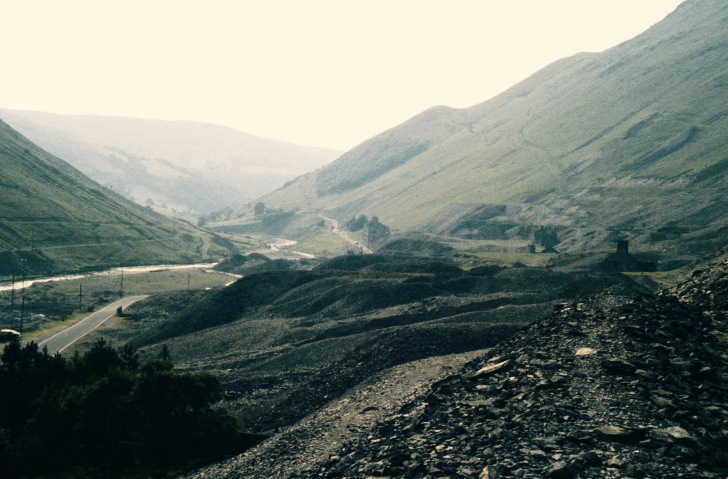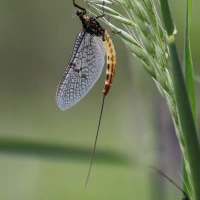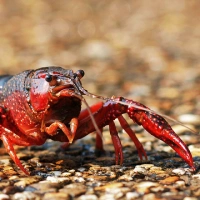Kathleen Carpenter: the mother of freshwater ecology

Cwmystwyth a metal mining area near Aberystwyth in Wales. The River Ystwyth to the left of the picture was heavily polluted by the mines. Image: W. L. Kovach
In this guest post for International Women’s Day, Dr. Catherine Duigan draws from her research on Dr. Kathleen Carpenter (1891-1970), the ‘mother’ of freshwater ecology, to suggest insights and wisdom that Carpenter might offer to new generations of freshwater scientists.
***

Image of Kathleen Carpenter supplied by Piotr F Piesiewicz
I am an ecologist born in the late 1800s, and I wrote the first British freshwater ecology textbook, Life in Inland Waters (1928). Julian Huxley, the textbook series editor, recognised that the ‘Cinderella charms’ of freshwater biology were at the time being ‘eclipsed by those of her elder and more ample sister, Marine Biology’. My textbook was developed to support undergraduate education in the field and redress the balance.
Fortunately, I was also born at a time when the rights of women were starting to be acknowledged. I attended and worked at universities in Europe and the US which pioneered the education of women, including the University of London, University College of Wales at Aberystwyth and Radcliffe College in Massachusetts.
When I arrived at Aberystwyth in 1911, some of the local river systems were devoid of life. My research linked the lack of invertebrates in these rivers to metal mining activity and demonstrated the way that fish gills were damaged by pollution, which often led to suffocation. My textbook described the different natural zones in rivers and lakes, and recognised the adaptations of different biota in aquatic ecosystems. I also recorded glacial relict species in British streams. Students at Aberystwyth to this day continue to discover my papers as part of literature reviews and the river research continues.
What would be my advice to the next generation of female freshwater ecologists?
Do something you love and be passionate about it
Passion helps to inspire the next generation. I gained a huge amount of aesthetic and scientific pleasure in describing and observing the organisms in rivers and lakes. In the preface to my textbook I talk about “a world of infinite beauty, infinite variety, infinite charm”. Showing passion makes people take notice and realise that some things are special.
Work hard at communicating your research
I was a communicator from the early days of my career as an assistant lecturer at Aberystwyth University. The textbook provided a story which lasted several decades and was supplemented by a series of scientific papers in a range of journals. I was also a regular contributor to conferences in Britain and abroad. It was amusing to generate newspaper headlines about ‘cannibal salmon’ after presenting a dietary study and referring to a spent male which had potentially consumed his own offspring. Today I would be using social media! #freshwaters #pollution #Faberystwyth!
Play a part in your professional learned societies
I was a member of several scientific societies, including the British Association for the Advancement in Science, Sigma Xi and the British Ecological Society. Scientific meetings provide incentives to produce high quality work and opportunities to travel and develop a professional network. Build your confidence by talking to the leaders in your field.
Travel and gain experience
In the early part of the 1900s freshwater science was developing in Europe and North America. I sailed across the Atlantic several times, travelling alone with up to $100 dollars in my pocket. One particularly memorable voyage to a scientific conference in Toronto had many eminent male scientists on board. I lived, taught and undertook research in British and American academic communities.
Take time to encourage other women.
I would be delighted to be considered a role model for young women scientists. In the US I was a member of the Delta Epsilon Sigma Society which was founded to provide women with an environment where they could network and interact with peers in informal and powerful ways that male scientists could. I still remember the tea party at Illinois State University before the meeting of the American Association of University Women in October 1928 where I contributed as a guest of honour to the discussion on British Universities.
Be generous to your students (and staff), they will reward you too.
A good relationship between teacher and student cultivates a common understanding and stimulates learning. One of my recorded awards was to have been elected to the Honor Society by the undergraduates of Washington College. The production of a textbook early in my career was a gift to future students. Take the time to talk and share knowledge.
Interdisciplinary research is vital for advancing our understanding of the world
In Life in Inland Waters I made the case for interdisciplinary research combining approaches from chemistry and biology to assess water quality. I would like to be contributing to current research into the links between the natural environment and human well-being, because I believed time spent by city workers on the riverbank was good for health and a quiet mind.
Speak more than one language
In the early decades of the 1900s freshwater science was dominated by continental European studies. Fortunately I was well placed to interpret them and present them to a wider audience because my father was German, and I had a working knowledge of French. Knowing more than one language increases your accessibility to information, especially indigenous knowledge, and can open up collaborative opportunities. Sign up for that class in Spanish or Welsh!
Demonstrate the practical relevance of your work
Nature is important in its own right – there to be enjoyed and protected – but today I appreciate that the final chapter in Life in Inland Waters reads like an early attempt to form the concept of ecosystem services. I thought it important to demonstrate the wider socio-economic context of my work: from the financial value of salmon sold at Billingsgate market in London to the human health risks of dirty water. My research informed the remedial efforts of a local River Pollution Committee. Perhaps this can be considered an early example of research having science-policy impact.
Wear sensible clothes when you do fieldwork and be safe
Can you contemplate the prospect of sampling a river whilst wearing a long skirt?! Fortunately for me, following the First World War women were able to adopt more practical, working clothes, including trousers. I can endorse research in the history of science which suggests that the development of sports clothing helped to make fieldwork socially acceptable for women ecologists. Working in an aquatic environment comes with risks, and you need to embrace health and safety requirements. Be sensible.
***
Dr. Catherine Duigan was educated at University College Dublin where she did a Ph.D on zooplankton in Irish lakes. Her international research background has included working in the USA, France, and Africa. She did post-doctoral research at Aberystwyth University and was the only woman to take part in two expeditions to the High Atlas Mountains in Morocco.
Catherine then went on to follow in the footsteps of Kathleen Carpenter with a professional interest in freshwater ecology in Wales, including writing and co-editing The Rivers of Wales book. She is currently leading a group of technical specialists covering aquatic and terrestrial environments at Natural Resources Wales in Bangor. As an honorary lecturer at Bangor University she contributes to teaching modules on freshwater ecology. She is also a STEM Ambassador.
Catherine considers bringing attention to Kathleen Carpenter’s history a very welcome obligation. Women scientists need to tell each other’s stories.














